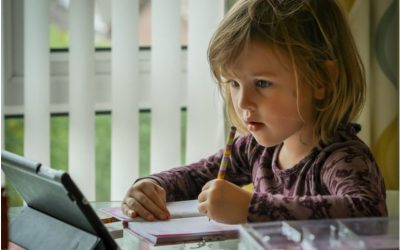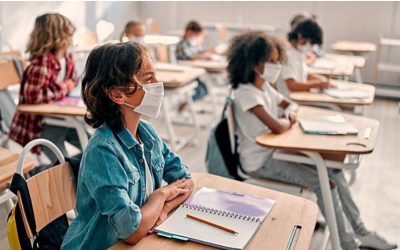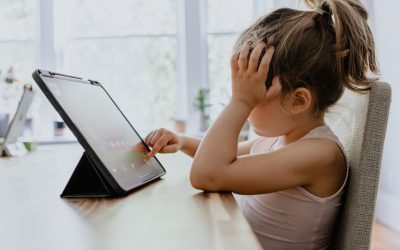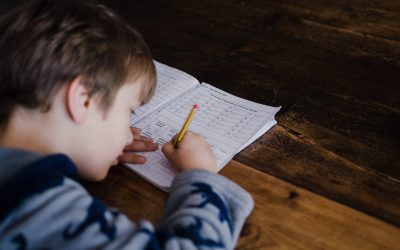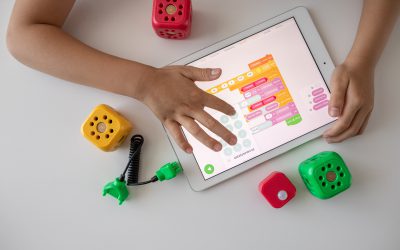School inspections when schools are closed…
10 Apr 2020 | Policy-makers, Professionals
Ofsted’s initial response to the Coronavirus was one of ‘business as usual’, leading to an outrage, particularly from principals who received a phone call for an unannounced visit the next day. Ofsted was quick to respond by suspending all routine inspection from the 17th of March. All of this now seems irrelevant with schools closed and school staff scrambling to organize some form of distance learning and support parents in homeschooling their children.
27-03-2020

Are we to have no school inspections the next couple of months? Or should we instead find new ways to evaluate teaching and learning?
I believe we should continue inspections, albeit in a different form. Ofsted should continue to assess teaching and learning for reasons of 1) transparency, 2) improvement and 3) preparing us for when schools open again. The approach I suggest would require a redesign of the current framework, applying it to the current context of homeschooling and distance learning with more agile, mobile tools to collect data. Let me explain.
We need inspections, even (or particularly) in a time of crisis
Most schools will have more than enough to deal with now and will have welcomed the temporary suspension of routine inspections. In the event that schools are closed for a longer period of time, we do need some kind of accountability and evaluation for the following three reasons:
- Transparency: we need to know whether/how pupils are learning and how they are currently being educated, how parents are coping with homeschooling their children, to what extent schools are teaching online and if/how they are supporting parents in their new role as teachers.
- Improve: a good understanding of how homeschooling and online teaching is currently organized and where this is, or isn’t working well enables a sharing of good practice across the country. It would also enable a more coordinated response to the current situation, such as by developing online materials and assessments, or sharing a whole-group instruction from the best online teachers.
- Prepare: at some point schools will open again and teachers will be faced with students who have either progressed well or have stagnated in their learning, have major gaps in certain subject areas, need to relearn to manage a regular school day and whole class teaching and deal with the pressure of reintroducing exams. Depending on the length of the current isolation, and whether loved ones were ill or passed away, students may also experience stress or anxiety when coming back to school. Knowing how teaching and learning is currently organized, the quality of it and wider experiences of children and young adults will help prepare interventions and measures for a good start when schools open again.
We weren’t prepared for the closure of schools, let’s at least try to prepare for schools reopening.
Inspecting schools, when schools are closed: redefining (measures of) educational quality
But given that it is not ‘business as usual’, how should Ofsted inspect? After all, there are no schools to go to, no lessons to be observed, and no recent data available about pupil’s learning and achievements.
What ‘educational quality’ means has drastically changed, as well as the roles and responsibilities of those who are now tasked with teaching and learning.
Let’s reflect on these two matters to understand how Ofsted may be a force for good in the current situation.
First of all, how can we now understand ‘quality of education’ in a context of homeschooling and distance learning. In its 2019 inspection framework, Ofsted states that it make graded judgements on the following areas using the four-point scale:
- Quality of education: the intended and implemented curriculum and the impact of the curriculum on learner outcomes
- Behaviour and attitudes of learners (commitment to learning, respectful behaviour and relations between learners and teachers, learners’ resilience to setbacks and taking pride in their achievements), including expectations of school staff and school policy.
- Personal development of learners and how the curriculum and wider school policy prepares learners for life in modern Britain, develop their interests and prepares them for future success
- Leadership and management to provide high quality education, ensure a safe learning climate, improve staff’s knowledge etc.
- Safeguarding
Educational quality: home-school partnerships
Applying these standards to a situation of home-schooling and online learning requires a substantial rethink on each of these standards where Ofsted now looks at the specific context in which students are learning, and the arrangements and home-school partnerships which are in place to 1) implement the curriculum, 2) ensure and promote respectful relations, not just between teachers and learners, but also between parents (as teachers), teachers and children, 3) ensure their personal development, particularly in a situation of stress, isolation and high anxiety, and 4) safeguard children’s well-being. This requires a very different type of leadership, where school principals need to be able to manage their school staff off-site, create a sense of community while also ensuring a school-wide coordinated approach to online learning. They also need to equip teachers with the professional skills to co-teach with parents.
Agile tools to measure quality of education
In regular inspections, data about these standards is collected through first-hand evidence, such as from visits of lessons, scrutinising pupils’ work; talking to pupils about their work, gauging both their understanding and their engagement in learning, and gathering pupils’ perceptions of the typical quality of education and other aspects of life at the school in a range of subjects. Given that all teaching is now taking place in isolation at home, Ofsted needs to find new ways to collect such evidence and monitor the quality of education.
Fortunately there are various excellent examples of mobile apps to be used:
- Teachertapp for example sends thousands of teachers three quick multiple choice questions about their day or their opinions on teaching and offers weekly analysis of how different types of teachers responded to the questions we asked. Their last report provides a comprehensive overview of what distance learning now looks like, what is happening in schools and what teachers need and want during the closures. The data, when aggregated for schools allows us to understand whether/how schools are coordinating their online offer and how well supported teachers are in moving to online teaching.
- Community score cards have been used in various low and middle income countries (e.g. Ghana, India) to enable parent monitoring of classroom teaching and learning; parents would for example report teacher attendance on specified moment during the day and this would inform a school report card. Similar tools can be used to for example learn about the time students are now learning at home, which subjects and subject areas are covered, and whether/how they are supported by schools.
The current time requires us to think about news ways to inspect quality of education. We need to collect and share information about how to ensure high quality of teaching and learning in a context of homeschooling and distance learning, particularly when schools are going to be closed for a while. Using more agile tools to measure quality and share lessons widely may even have the positive outcome of moving inspection to a more formative type of assessment.
See also information for:
Most recent blogs:
How LEARN! supports primary and secondary schools in mapping social-emotional functioning and well-being for the school scan of the National Education Program
Jun 28, 2021
Extra support, catch-up programmes, learning delays, these have now become common terms in...
Conference ‘Increasing educational opportunities in the wake of Covid-19’
Jun 21, 2021
Covid-19 has an enormous impact on education. This has led to an increased interest in how recent...
Educational opportunities in the wake of COVID-19: webinars now available on Youtube
Jun 17, 2021
On the 9th of June LEARN! and Educationlab organized an online conference about...
Homeschooling during the COVID-19 pandemic: Parental experiences, risk and resilience
Apr 1, 2021
Lockdown measures and school closures due to the COVID-19 pandemic meant that families with...
Catch-up and support programmes in primary and secondary education
Mar 1, 2021
The Ministry of Education, Culture and Science (OCW) provides funding in three application rounds...
Home education with adaptive practice software: gains instead of losses?
Jan 26, 2021
As schools all over Europe remain shuttered for the second time this winter because of the Covid...

